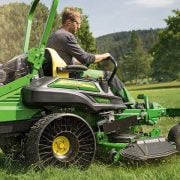As summer temperatures soar, air conditioning units work tirelessly to keep our homes and offices cool and comfortable. However, sometimes these reliable appliances may falter, leaving you with a hot and stuffy space. To help you keep your cool, we’ve compiled a list of the top 5 common AC unit problems and how to fix them. By understanding these issues and knowing what to look for in your AC parts, you can potentially save time, money, and frustration.
1. Dirty or Clogged Filters
One of the most common AC unit problems is a dirty or clogged filter. When filters become dirty, they restrict airflow, making it harder for the unit to cool the air effectively. This can lead to reduced efficiency, higher energy bills, and a shorter lifespan for your AC system.
How to fix it:
- Check your AC unit’s filter at least once a month and clean or replace it as needed. The specific replacement schedule will depend on your unit’s make and model, as well as your household’s dust and allergen levels.
- Make sure to use the correct filter size and type recommended by the manufacturer.
- Consider investing in a high-quality, reusable filter that can be washed and reused for a more cost-effective and eco-friendly solution.
2. Refrigerant Leaks
Refrigerant is the essential fluid that absorbs heat from the air and cools it down in your AC system. A refrigerant leak can lead to reduced cooling efficiency, inconsistent temperatures, and even damage to your AC parts.
How to fix it:
- Inspect your AC unit for signs of a refrigerant leak, such as oily residue or ice buildup around the refrigerant lines.
- If you suspect a leak, contact a professional HVAC technician to repair the leak and recharge the refrigerant. Do not attempt to do this yourself, as refrigerant can be hazardous if handled improperly.
3. Frozen Evaporator Coils
The evaporator coil is responsible for absorbing heat from the air, allowing the refrigerant to cool it down. When the evaporator coil becomes frozen, it can no longer perform this function effectively, resulting in a lack of cool air.
How to fix it:
- Check the air filter for blockages and replace or clean it as needed.
- Ensure that the air vents and registers throughout your home are open and unobstructed to allow for proper airflow. Regularly inspect the evaporator coil for signs of frost or ice buildup, and if necessary, turn off the AC unit and allow the coil to thaw completely before restarting. If the problem persists, contact a professional HVAC technician to inspect the system and address any underlying issues.
4. Malfunctioning Thermostat
The thermostat is the control center for your AC system, regulating the temperature and ensuring that your home stays comfortable. If your thermostat is not functioning properly, your AC unit may not cool your space effectively or may run constantly, leading to higher energy bills and decreased system longevity.
How to fix it:
- Make sure the thermostat is set to “cool” and the temperature is set lower than the current room temperature.
- Check the thermostat’s batteries and replace them if necessary.
- Ensure that the thermostat is level and free of dust or debris that may interfere with its operation.
- If your thermostat is outdated or has a history of issues, consider upgrading to a programmable or smart thermostat for improved energy efficiency and convenience.
5. Faulty AC Parts
Over time, the various components in your AC unit may wear down or become damaged. Faulty AC parts can lead to reduced efficiency, poor performance, and even a complete system breakdown.
How to fix it:
- Regularly inspect your AC unit for any signs of wear or damage, such as frayed wiring, damaged fan blades, or corroded components.
- Keep a record of your AC unit’s maintenance history and replace parts as recommended by the manufacturer.
- Listen for unusual noises coming from your AC unit, as they may indicate a problem with a specific component. If you suspect that one or more AC parts are faulty, contact a professional HVAC technician to diagnose and repair the issue.
Conclusion
By familiarizing yourself with these top 5 common AC unit problems and learning how to fix them, you can keep your air conditioning system running smoothly and efficiently. Proper maintenance and timely repairs can help prevent more significant issues down the line, saving you time, money, and frustration. When in doubt, always consult a professional HVAC technician to ensure your AC system is in optimal condition and providing the comfort you deserve.














Comments